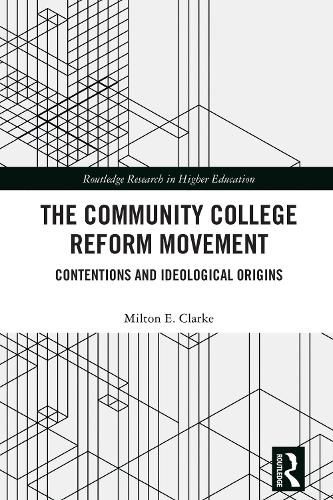Readings Newsletter
Become a Readings Member to make your shopping experience even easier.
Sign in or sign up for free!
You’re not far away from qualifying for FREE standard shipping within Australia
You’ve qualified for FREE standard shipping within Australia
The cart is loading…






This book critically examines the rise of the higher education reform movement, often referred to as the "completion agenda," which, since the early 2000s, has sought to restructure core aspects of the community college experience. Using community colleges from across nine U.S. states as practical examples, it explores the major higher education reforms, including dual enrollment, the demise of developmental education, corequisites, and performance-based funding. Against the popular view that support for such policies is tied to neoliberalism, it argues for a more nuanced understanding of the complicated and often indistinct ideological foundation of the reform movement, demonstrating that supporters and detractors alike draw on similar concepts such as equity, student success, and affordability. This complication is further clarified through an account of the history, processes, functions, and institutions that paved the way for the advent of the higher education reform movement.
This book is vital reading for anyone interested in the future of community colleges and higher education. More generally, this book will particularly appeal to scholars, researchers, and educators working in higher education, educational reform, and educational policy.
$9.00 standard shipping within Australia
FREE standard shipping within Australia for orders over $100.00
Express & International shipping calculated at checkout
This book critically examines the rise of the higher education reform movement, often referred to as the "completion agenda," which, since the early 2000s, has sought to restructure core aspects of the community college experience. Using community colleges from across nine U.S. states as practical examples, it explores the major higher education reforms, including dual enrollment, the demise of developmental education, corequisites, and performance-based funding. Against the popular view that support for such policies is tied to neoliberalism, it argues for a more nuanced understanding of the complicated and often indistinct ideological foundation of the reform movement, demonstrating that supporters and detractors alike draw on similar concepts such as equity, student success, and affordability. This complication is further clarified through an account of the history, processes, functions, and institutions that paved the way for the advent of the higher education reform movement.
This book is vital reading for anyone interested in the future of community colleges and higher education. More generally, this book will particularly appeal to scholars, researchers, and educators working in higher education, educational reform, and educational policy.